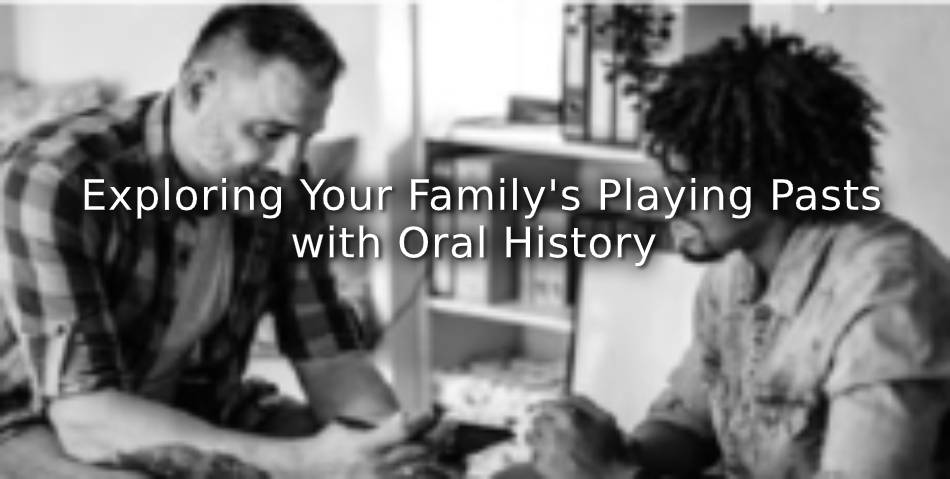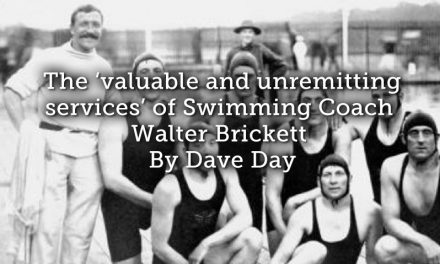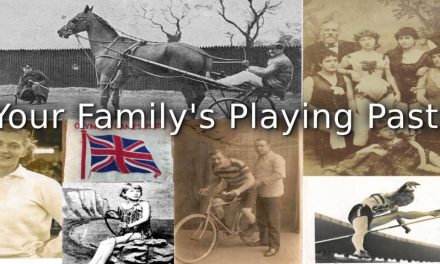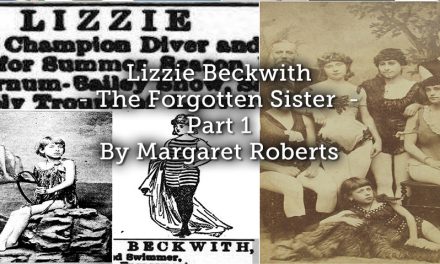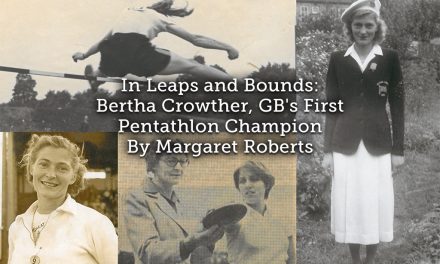Following on from our successful launch of Your Family’s Playing Pasts Margaret is now working with a number of families to help uncover the hitherto unrecognized stories of people’s engagement at all levels of sport and in many aspects of leisure. This work inevitably involves conversations with surviving family members, with this in mind, Playing Pasts reproduces below some ideas for conducting your oral history research complied by researcher Lisa Taylor, who has also developed a practical oral history guide to allow family researchers, and others, to follow a systematic process in order to get the best results. Links to standard oral history guidelines for those who wish to take their research further are also included at the end of this article. So…..
What could we learn about our histories if we listened to the people around us?
Oral historians see the potential in the stories people tell about their lives. Our aim is to listen, actively, and to understand these stories. We want to learn what people can teach us, through narrators’ accounts of their lived experience. This is often in communities we do not know or understand yet. But oral history can be a rewarding way to understand the sporting past of our families, or other personal networks, as well as further afield.
Oral history has often been used as a means of historical ‘recovery’: a way of finding out details that have not been located in other sources. If staples like news reports or minute books are not available – often the case in less formal, or lower-profile sporting communities – oral history offers an opportunity to find out more. Regardless of whether alternative sources are available, oral history provides different insights. Even very well-kept records cannot be seen as constituting a ‘comprehensive’ historical account. Such records might tell us in scrupulous detail how many people played, where and when they trained, how much the takings were in the bar every week, all manner of details that build a picture of how a club, sport or community operated. Yet the human experience of it is more complex. Sport can mean different things to different people in the same community. Through oral history, people can help us to understand how it fitted into a broader patchwork of their experiences in and through time.
People are not always reliable in their accounts of the past, at least in the sense of accurate factual retrieval. They may not have access to exact details; things like dates, places, the sequence of things may be confused or inconsistent. They may, simply, not wish to share particular things, skimming over, skirting around, or denying them instead. The oral historian needs to make judgments about what we can see as reliable within any accounts. The value of an account might be anything from recall of facts that might exist in other forms to the memory of a feeling. We may or may not know where this value might be located when we begin.
In some respects, listening to people we already know is an easier task. It is certainly a different task to listening to a stranger. We probably share some rapport. We may be more attuned to cues of body language or intonation, or already (think we) know some of the story. By the same token we may become less careful as listeners; there may be more reticence to discuss certain experiences precisely because we are close.
But for the majority, sporting pasts in particular offer the opportunity to focus on less difficult or emotive topics. For many, certainly in the context of family history, reflecting on their sporting past can be a prompt to share and reflect on parts of their lives that brought them pride and happiness – and indeed, things that they themselves might have forgotten.
Below is the link to a document that offers a basic introduction to doing oral history. If you are feeling inspired to give it a try, have a read and start to think about who you might like to listen to, whose stories you have always wondered about, or never thought to question.
While the ethical considerations are different in these circumstances compared to a formal research project, if you wish to share any of their story in any way you need to be sure they understand what this might mean.
People’s stories are precious and can open doors on history that would otherwise remain shut. Listen, listen carefully, and be ready to learn from them.
If you want help tracing a sporting ancestor please contact Margaret at Playing Pasts by emailing her at Contact@playingpasts.co.uk
You may also be interested in the following:
- The Oral History Society offers training, guidance and a community for oral historians, as well as some resources online.
- The British Library Sounds Collection has made many recordings available online. This collection includes recordings specific to sport.
- The Oral History Association, based in the USA, offers a wealth of ideas and resources. This list of web-based guides on doing oral history is a great place to start.
- While we have focused on family history, oral history has an important place in activism and politics. The National Museum of African American History and Culture (NMAAHC) Civil Rights History Project has an extensive collection of recordings pertaining to The Freedom Movement the 1950s and 1960s.
- NHS at 70: The Story of our Lives is a major oral history project in the UK. Read about how this project has been affected and the alternatives they have found here.
- https://www.familysearch.org/blog/en/family-history-2/ emphasises how rewarding it can be to build a connection to our family and its past. Oral history in particular allows you to do this in an immediate and human way: you are ‘in the room’ with someone, getting to know more about them and their life.

